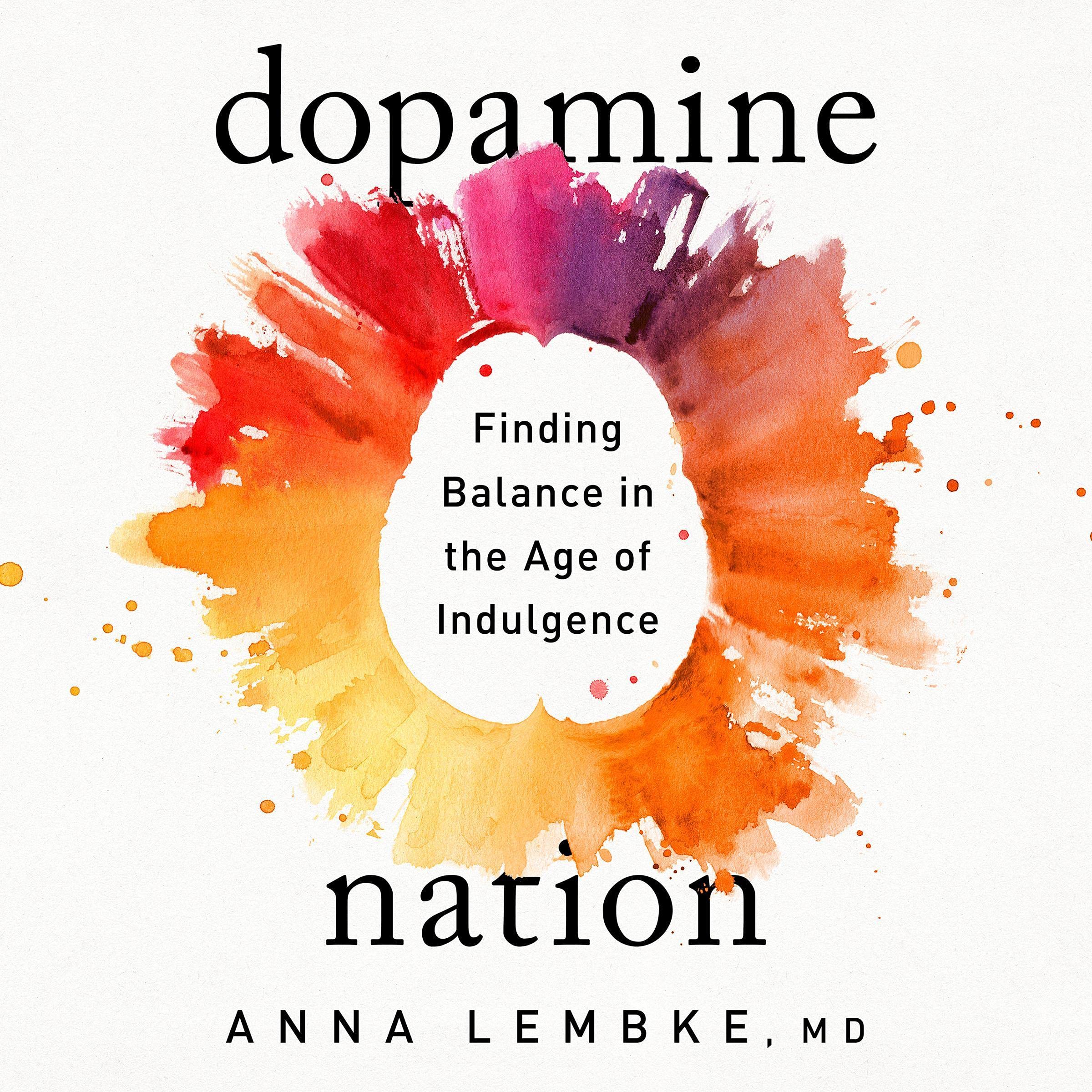
Dopamine Nation: Finding Balance in the Age of Indulgence
4.5 4.5 out of 5 stars | 10,398 ratings
Price: 13.78
Last update: 04-08-2025
About this item
INSTANT NEW YORK TIMES and LOS ANGELES TIMES BESTSELLER
“Brilliant . . . riveting, scary, cogent, and cleverly argued.”—Beth Macy, author of Dopesick, as heard on Fresh Air
This book is about pleasure. It’s also about pain. Most important, it’s about how to find the delicate balance between the two, and why now more than ever finding balance is essential. We’re living in a time of unprecedented access to high-reward, high-dopamine stimuli: drugs, food, news, gambling, shopping, gaming, texting, sexting, Facebooking, Instagramming, YouTubing, tweeting . . . The increased numbers, variety, and potency is staggering. The smartphone is the modern-day hypodermic needle, delivering digital dopamine 24/7 for a wired generation. As such we’ve all become vulnerable to compulsive overconsumption.
In Dopamine Nation, Dr. Anna Lembke, psychiatrist and author, explores the exciting new scientific discoveries that explain why the relentless pursuit of pleasure leads to pain . . . and what to do about it. Condensing complex neuroscience into easy-to-understand metaphors, Lembke illustrates how finding contentment and connectedness means keeping dopamine in check. The lived experiences of her patients are the gripping fabric of her narrative. Their riveting stories of suffering and redemption give us all hope for managing our consumption and transforming our lives. In essence, Dopamine Nation shows that the secret to finding balance is combining the science of desire with the wisdom of recovery.
Top reviews from the United States
5.0 out of 5 stars Great! Scary! One correction
One correction however. She references a book entitled "Llstening to Prozac"' saying that one can become addicted to antidepressants. This is absolutely false as proven by multiple tests on Prozac, other SSRIs and SNRIs.
The book was published right after Prozac came out and was on the cover of Time and Newsweek. The author reported that Prozac could make you feel "better than good." I'd doesn't. Also, like ALL antidepressants except the rarely prescribed MAOIs (the first antidepressant which have a success rate of about 90%) they work only 40% of the time.
The popularity of Prozac (and the other SSRIs and SNRIs that followed) was in part because of this: what psychiatrists previously used an antidepressants, TCAs, were lethal in very small does (5 pills); fear of suicide w/depression. So GPs, internists would not prescribe them and refer them to psychiatrists (no potentially liability.) But w/SSRis and SNRIs, with which you can't kill yourself, GPs and interneests went to town.
But benzodiazepines, Ambien, and meds for ADHD and ADH highly addictive-dopamine. The book is a wonderful discourse on this neurobiological chemical and a scary one and true. Easy to understand, too.
The sad case of Jacob's life long sex addiction is, frankly, sick and depressing
5.0 out of 5 stars Thought provoking and informative
4.0 out of 5 stars interesting subject matter
5.0 out of 5 stars great read on addiction from a brain chemistry perspective
5.0 out of 5 stars Taking a 6-Week Hiatus from Weed Due to This Book
Then I read this book and the section about the pain-pleasure balance. Essentially, the more you experience the dopamine pleasure, the more it takes to get that same pleasure. Any time you don't partake in that thing, you feel immense "pain," in some form, that pushes you back to your coping mechanism. It's why addicts return to drugs, unfortunately. There was one line in there that talked about giving up your dopamine cope for at least 6-weeks.
Leading up to the 4th week of my 6-week pause was rough, let me tell ya. I was angry, snappy, depressed, and things didn't seem as fun as they were when I was high. But, I kept up with it. I'm now going on to my 5th week of the 6-weeks and I can confirm, if you can make it over that hump, you realize you don't _need_ the cope, your mind was only thinking it did. This is a good book and it's told by someone who clearly knows what she's been through and how she's helped others with the same problem.
If you struggle to break away from your phone, your drink, or your drug of choice, this book may give you insight you didn't have before and help you to cease that cyclical routine. It's not just the author talking about her experiences, but you may resonate with the various patients she talks about within.
It may help you regain some control in a world that seems increasingly out-of-control.